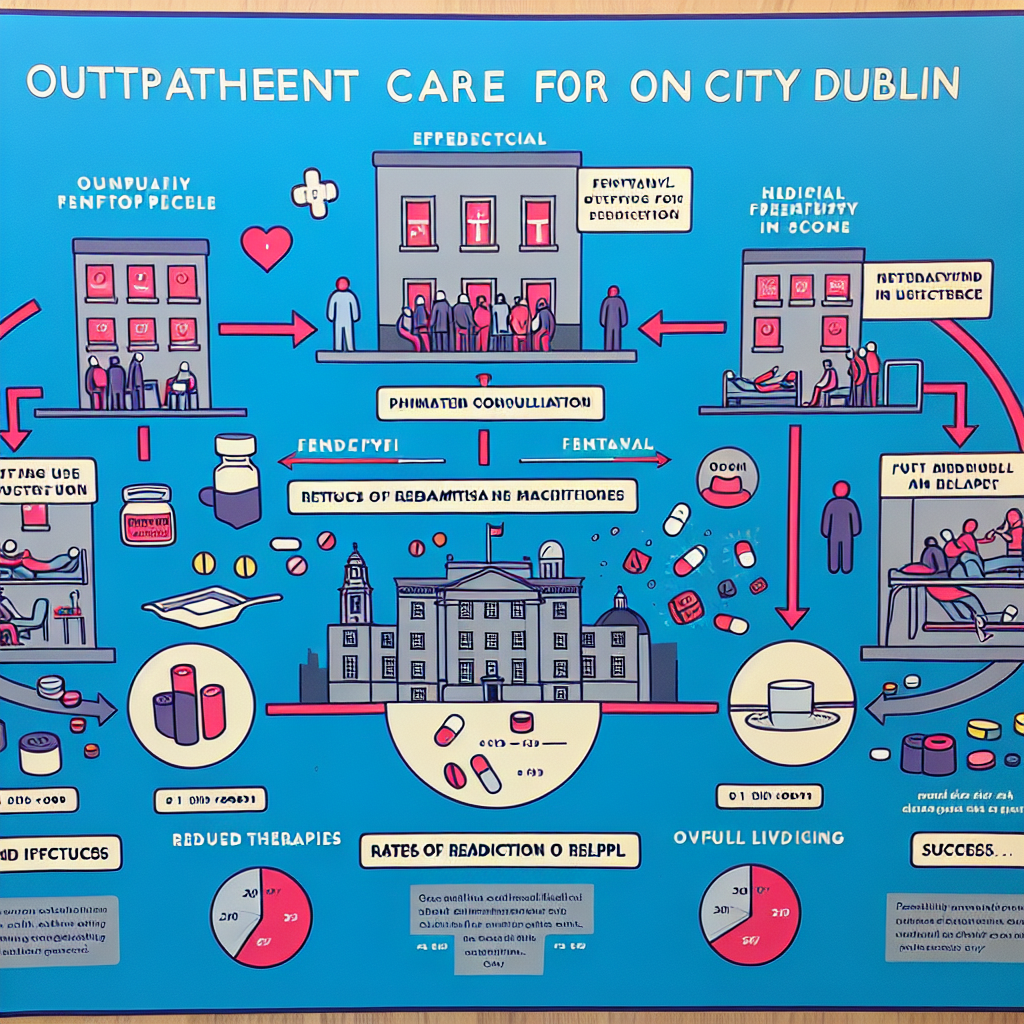-
Table of Contents

“Unlocking Recovery: The Crucial Role of Psychotherapy in Fentanyl Rehab”
Introduction
The Importance of Psychotherapy in Fentanyl Rehab
Fentanyl, a potent synthetic opioid, has become a significant contributor to the opioid crisis, leading to a surge in addiction and overdose deaths. Addressing fentanyl addiction requires a comprehensive approach, and psychotherapy plays a crucial role in this process. Psychotherapy, or talk therapy, provides individuals with the tools to understand and manage their addiction, address underlying psychological issues, and develop healthier coping mechanisms. It helps patients explore the root causes of their substance use, such as trauma, mental health disorders, or environmental factors, and fosters emotional healing and resilience. By integrating psychotherapy into fentanyl rehab programs, individuals receive holistic care that not only targets the physical aspects of addiction but also promotes long-term recovery and well-being.
The Role of Psychotherapy in Overcoming Fentanyl Addiction
Psychotherapy plays a pivotal role in overcoming fentanyl addiction, offering a beacon of hope and a pathway to recovery for those ensnared by this potent opioid. Fentanyl, a synthetic opioid that is significantly more powerful than morphine, has been at the center of the opioid crisis, leading to a surge in addiction and overdose deaths. While medical detoxification is crucial in managing the physical aspects of withdrawal, it is psychotherapy that addresses the underlying psychological factors, providing a comprehensive approach to rehabilitation.
One of the primary benefits of psychotherapy in fentanyl rehab is its ability to uncover and address the root causes of addiction. Many individuals turn to substances like fentanyl as a means of coping with unresolved trauma, stress, or mental health disorders. Through various therapeutic modalities, such as cognitive-behavioral therapy (CBT), psychotherapists help patients identify and challenge the negative thought patterns and behaviors that contribute to their addiction. This process not only aids in reducing the likelihood of relapse but also empowers individuals to develop healthier coping mechanisms.
Moreover, psychotherapy fosters a deeper understanding of the emotional triggers that lead to substance use. By exploring these triggers in a safe and supportive environment, patients can learn to recognize and manage them more effectively. This self-awareness is crucial in preventing future episodes of substance abuse. For instance, a person who understands that stress at work is a trigger for their fentanyl use can work with their therapist to develop strategies for managing stress without resorting to drugs.
In addition to individual therapy, group therapy sessions offer a unique and invaluable component of fentanyl rehab. These sessions provide a sense of community and shared experience, which can be incredibly therapeutic for individuals who often feel isolated in their addiction. Hearing the stories of others who have faced similar struggles can instill a sense of hope and motivation. Furthermore, group therapy encourages the development of social skills and the rebuilding of trust, which are often eroded by addiction.
Family therapy is another critical aspect of psychotherapy in fentanyl rehab. Addiction does not occur in a vacuum; it affects the entire family unit. Family therapy sessions aim to repair relationships, improve communication, and create a supportive home environment conducive to recovery. By involving family members in the therapeutic process, patients can rebuild their support systems, which are essential for long-term sobriety.
The integration of psychotherapy in fentanyl rehab also addresses co-occurring mental health disorders, which are prevalent among those struggling with addiction. Conditions such as depression, anxiety, and post-traumatic stress disorder (PTSD) often coexist with substance use disorders, creating a complex web of challenges. Dual diagnosis treatment, which simultaneously addresses both the addiction and the mental health disorder, is essential for effective rehabilitation. Psychotherapy provides the tools and techniques necessary to manage these co-occurring conditions, thereby enhancing the overall treatment outcomes.
In conclusion, the importance of psychotherapy in fentanyl rehab cannot be overstated. It offers a holistic approach that goes beyond merely treating the physical symptoms of addiction. By addressing the psychological, emotional, and social aspects of substance use, psychotherapy paves the way for lasting recovery. It equips individuals with the skills and insights needed to navigate the challenges of sobriety, fostering resilience and hope. For those battling fentanyl addiction, psychotherapy is not just a component of treatment; it is a lifeline to a healthier, more fulfilling future.
How Psychotherapy Enhances Recovery in Fentanyl Rehabilitation Programs
Psychotherapy plays a pivotal role in the recovery process for individuals undergoing rehabilitation for fentanyl addiction. This powerful synthetic opioid, known for its potency and high risk of overdose, has created a pressing need for comprehensive treatment programs that address both the physical and psychological aspects of addiction. While medical detoxification is essential to manage the acute withdrawal symptoms associated with fentanyl, it is psychotherapy that often provides the foundation for long-term recovery and relapse prevention.
One of the primary ways psychotherapy enhances recovery in fentanyl rehabilitation programs is by helping individuals understand the underlying causes of their addiction. Many people who struggle with substance abuse have co-occurring mental health disorders, such as depression, anxiety, or trauma-related conditions. Through various therapeutic modalities, such as cognitive-behavioral therapy (CBT) and dialectical behavior therapy (DBT), individuals can explore the root causes of their addiction and develop healthier coping mechanisms. This self-awareness is crucial for breaking the cycle of addiction and fostering a sense of empowerment and control over one’s life.
Moreover, psychotherapy provides a safe and supportive environment for individuals to express their emotions and experiences. The stigma associated with addiction often leads to feelings of shame and isolation, which can hinder the recovery process. In therapy, individuals are encouraged to share their stories without fear of judgment, allowing them to process their emotions and build a sense of community with others who are facing similar challenges. This sense of connection can be incredibly healing and can motivate individuals to stay committed to their recovery journey.
In addition to addressing the emotional and psychological aspects of addiction, psychotherapy also equips individuals with practical skills to navigate the challenges of everyday life. For instance, CBT helps individuals identify and change negative thought patterns and behaviors that contribute to their substance use. By learning to recognize triggers and develop healthier responses, individuals can reduce their risk of relapse and build a more stable and fulfilling life. Similarly, DBT teaches skills such as mindfulness, emotional regulation, and distress tolerance, which can be invaluable in managing the stress and cravings that often accompany the recovery process.
Furthermore, psychotherapy can play a crucial role in repairing and strengthening relationships that may have been damaged by addiction. Family therapy, for example, involves the individual’s loved ones in the treatment process, helping to rebuild trust and improve communication. This support system can be a vital source of encouragement and accountability, making it easier for individuals to stay on track with their recovery goals. Additionally, group therapy provides opportunities for individuals to learn from the experiences of others and gain new perspectives on their own struggles.
It is also important to recognize that recovery from fentanyl addiction is a long-term process that requires ongoing support. Psychotherapy offers a continuum of care that can adapt to the changing needs of individuals as they progress through different stages of recovery. Whether through individual therapy, group sessions, or support groups, ongoing therapeutic engagement helps individuals maintain their sobriety and continue to grow and heal.
In conclusion, psychotherapy is an indispensable component of fentanyl rehabilitation programs, offering a holistic approach to recovery that addresses the emotional, psychological, and practical aspects of addiction. By fostering self-awareness, providing emotional support, teaching coping skills, and strengthening relationships, psychotherapy empowers individuals to overcome their addiction and build a healthier, more fulfilling life. The journey to recovery is undoubtedly challenging, but with the right therapeutic support, it is entirely possible to achieve lasting change and reclaim one’s life from the grips of addiction.
Q&A
1. **Question:** How does psychotherapy contribute to the effectiveness of fentanyl rehab?
**Answer:** Psychotherapy helps individuals in fentanyl rehab by addressing underlying psychological issues, providing coping strategies, and supporting behavioral changes necessary for long-term recovery.
2. **Question:** What types of psychotherapy are commonly used in fentanyl rehab?
**Answer:** Common types of psychotherapy used in fentanyl rehab include Cognitive Behavioral Therapy (CBT), Dialectical Behavior Therapy (DBT), and Motivational Interviewing (MI).
Conclusion
Psychotherapy plays a crucial role in fentanyl rehabilitation by addressing the psychological aspects of addiction, providing coping strategies, and facilitating emotional healing. It helps individuals understand the underlying causes of their substance use, develop healthier behaviors, and build a supportive network, thereby significantly enhancing the chances of long-term recovery and reducing the risk of relapse.



